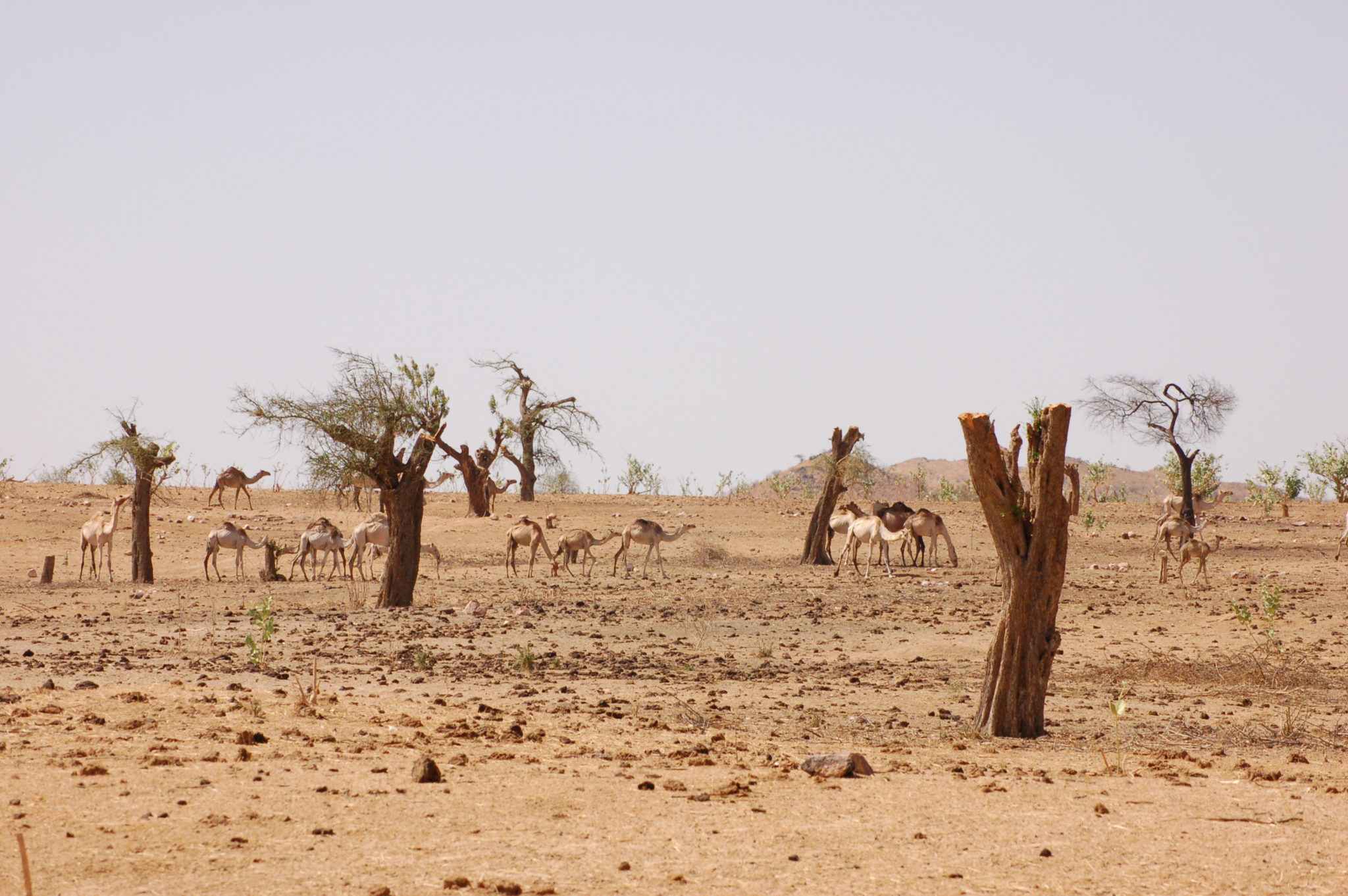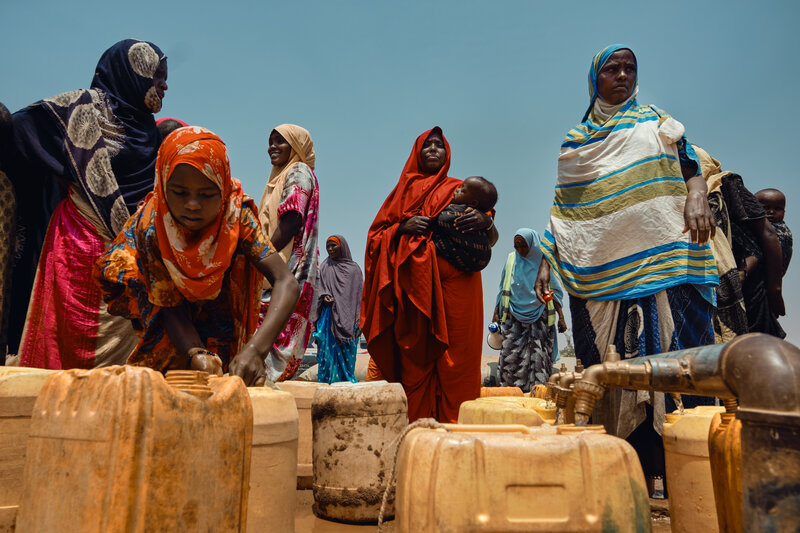BAIDOA (Kaab TV) – Sahro Mohamed Ali, a mother of seven, once lived in the rural village of Sagle in Somalia’s Bakool region, where she supported her family through livestock rearing and charcoal production, cutting down trees to make a living.
However, recurrent droughts caused by climate change and the subsequent seizure of Al-Shabaab by the rural villages forced Sahro and her children to flee to an internally displaced persons (IDP) camp in Baidoa, the interim capital of South West State.
Today, this camp is their home.
Climate change, which has devastated farmlands and led to massive livestock losses, has hit rural families hardest—especially women with children.
These challenges have plunged many into extreme poverty and hardship.
As the sole provider for her family, Sahro has taken on unconventional work for women in Somalia, such as construction labor, to make ends meet.

“When people arrive at IDP camps, they face a harsh reality,” Sahro says. “There’s no consistent aid, and most of us have to find daily jobs in the city just to feed our families.”
Each morning, Sahro heads to a construction site, where she carries heavy stones and cement.
Her hard day’s labor earns her a small wage of upto three dollars, which she uses to buy food for her children. In the evening, she returns to her makeshift shelter in the camp, where her children wait eagerly for her to prepare a meal from her earnings.
A Nation in Crisis
According to the United Nations, nearly four million people are internally displaced in Somalia as of 2024, driven by conflict, insecurity, drought, and floods.
Regions like Baay, Bakool, and the Shabelle River valleys—once the breadbasket of Somalia—now face widespread hunger due to environmental degradation.
For families like Sahro’s, displacement is not just a temporary hardship but an ongoing struggle to survive in camps that lack basic services such as healthcare and education.

The temporary nature of these camps exposes women and children to heightened risks, and the hope of returning home remains dim as conflicts continue and climate change worsens.
Sahro reflects on her life before displacement, unaware at the time of the environmental toll caused by charcoal production—a practice that contributed to the deforestation and environmental degradation now devastating her community.
The destruction of her environment led to the death of her livestock, forcing her and her children into displacement.
For Sahro and countless others, survival now depends on adapting to urban livelihoods while clinging to the hope of one day returning to their ancestral lands—a hope that grows fainter with each passing day.
-- Reporting by Nurto Mohamed in Baidoa. This report is part of climate change coverage in Somalia by local journalists participating in a training program provided by the Somali Journalists Syndicate (SJS) with support from Medico International.

